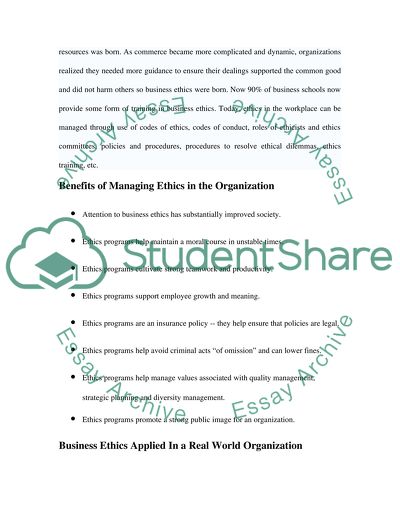Cite this document
(Managing Ethics in Business Essay Example | Topics and Well Written Essays - 1500 words - 2, n.d.)
Managing Ethics in Business Essay Example | Topics and Well Written Essays - 1500 words - 2. https://studentshare.org/ethics/1545690-ethics-and-governance
Managing Ethics in Business Essay Example | Topics and Well Written Essays - 1500 words - 2. https://studentshare.org/ethics/1545690-ethics-and-governance
(Managing Ethics in Business Essay Example | Topics and Well Written Essays - 1500 Words - 2)
Managing Ethics in Business Essay Example | Topics and Well Written Essays - 1500 Words - 2. https://studentshare.org/ethics/1545690-ethics-and-governance.
Managing Ethics in Business Essay Example | Topics and Well Written Essays - 1500 Words - 2. https://studentshare.org/ethics/1545690-ethics-and-governance.
“Managing Ethics in Business Essay Example | Topics and Well Written Essays - 1500 Words - 2”. https://studentshare.org/ethics/1545690-ethics-and-governance.


